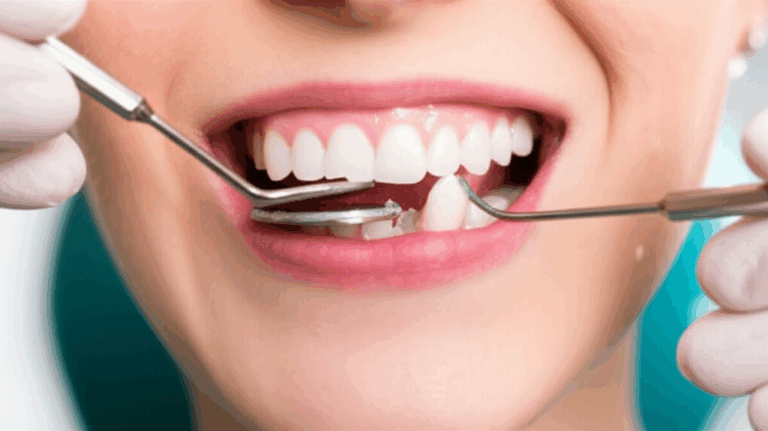
What Is an Associate Dentist?
A Friendly Guide to Understanding the Role, Responsibilities, and What It Means for You
Have you ever met a new dentist in your dental office, maybe someone introduced as an “associate dentist,” and wondered—what does that actually mean? Are they a ‘real’ dentist? How does their job differ from a practice owner or partner?
If you’re exploring a dental career, maybe you’re thinking: Is starting out as an associate dentist a smart move? What exactly do associate dentists do each day, and what does my future look like if I choose this path?
You’re not alone. These are some of the most common (and smart!) questions patients, dental students, and even experienced dentists ask. In today’s changing dental world, understanding the associate dentist role will help you make confident decisions—whether you’re choosing a new dentist, planning your career, or growing a dental office.
Let’s break it all down—without big words.
In This Article
- What Is an Associate Dentist?
- What Does an Associate Dentist Actually Do Each Day?
- How Is an Associate Dentist Different from Other Dental Roles?
- The Associate Dentist Career Path: Is This the Right Fit for You?
- How Do Associate Dentists Get Paid?
- Pros and Cons of Being or Hiring an Associate Dentist
- Key Things to Know About Associate Dentist Contracts
- How Do You Become an Associate Dentist?
- What Practice Owners Should Know Before Hiring an Associate
- The Future of Associate Dentistry: What’s Changing?
- Your Takeaways & Next Steps
What Is an Associate Dentist?
(Why am I seeing an “associate” at my dental office? Is that normal?)
Picture this: you walk into a dental clinic and, instead of seeing the owner or main dentist, you’re scheduled with Dr. Taylor—the associate dentist. Maybe you wonder if this dentist is just filling in, or just starting out, or if they have the same training as the owner. Good question!
An associate dentist is a fully qualified, licensed dentist who works for a dental office owner or Dental Service Organization (DSO). Instead of owning the business or being a partner, they are hired (usually as employees or independent workers) to provide dental care to patients.
Their main focus? Doing dental care—things like cleanings, fillings, check-ups, and more—without worrying about running the business behind the scenes.
This setup is very common. Lots of clinics, from small offices to bigger dental groups and DSOs, bring in associate dentists to help care for more patients, offer more services, and create more flexible hours.
Key points:
- Yes—they are fully trained, licensed dentists.
- They usually don’t own part of the practice.
- They focus on caring for patients, not running a business.
- Their title, “associate,” just means they’re an employee or contractor—not a partner or owner.
In short: If you get scheduled with an associate dentist, don’t worry—you’re in good hands!
What Does an Associate Dentist Actually Do Each Day?
(What happens ‘in the chair’? Who does what?)
Let’s see what a day in the life of an associate dentist looks like. Here’s what they usually do:
Dental Procedures
- Check-ups: Looking at your teeth and gums for signs of cavities, gum disease, and other problems.
- Finding Problems & Making Plans: Deciding what treatment you need (from fillings to root canals) and making a plan—with your input.
- Fixing Teeth: Doing fillings, crowns, and sometimes root canals (usually on front teeth; harder cases may get sent out).
- Prevention: Teaching about brushing, flossing, fluoride, and other ways to keep your mouth healthy.
- Pulling Teeth: Taking out teeth that are badly damaged or infected, if necessary.
Patient Care
- Talking & Listening: Explaining your choices, answering questions, and helping with fears.
- Teaching: Helping you understand the reasons for brushing well, eating tooth-friendly foods, and why check-ups matter.
Teamwork
Associate dentists work with a team, including:
- Dental hygienists: Do cleanings and help stop problems early.
- Dental assistants: Get tools ready, help during procedures, and support the dentist.
- Front desk staff: Schedule visits, handle bills, answer your calls.
Paperwork
They are responsible for writing down details (noting everything that happens during your visit for safety, legal, and medical reasons). This is important for good, organized, and honest care.
How Is an Associate Dentist Different from Other Dental Roles?
(Why does the job title matter for patients and for people working in the field?)
Here’s a basic look.
Associate Dentist vs. Owner
- Practice Owner: Makes the big decisions, hires people, sets the budget, buys equipment, and deals with business problems. Sort of like being player and coach.
- Associate Dentist: Focuses on seeing patients and doing dental work. Like a key player on the team—but not the one running things.
Associate Dentist vs. Partner
- Partner: Shares in owning the office, profits, and big choices.
- Associate: Is hired to do dental work but doesn’t own any part.
Associate Dentist vs. Independent Contractor
Both don’t ‘own’ the office, but:
- Employee Associate: Gets a salary or a percentage of money brought in, gets some benefits, and taxes are taken out.
- Independent Contractor Associate: Usually paid a set percentage, takes care of their own taxes and insurance, and may have more control—along with more personal risk and responsibility.
For Patients:
Whoever treats you—associate, partner, or owner—all are qualified dentists focused on good care.
The Associate Dentist Career Path: Is This the Right Fit for You?
(Who becomes an associate dentist? Is it a “stepping stone,” or a job you keep forever?)
Good questions, especially if you want to be a dentist!
A Great Starting Job
Most new dental school grads become associate dentists first. Why? It’s the best way to:
- Get real-world experience without running an office right away.
- Get help and advice from older dentists.
- Make a salary or percentage, which is helpful for paying student loans without big money risks at first.
A Stepping Stone to Owning a Practice
After a few years as an associate, some dentists decide to own a dental office one day. Being an associate lets you:
- Learn how a dental office runs.
- Build up a group of patients and goodwill in the area.
- Sometimes become a partner or buy the office later on.
A Good Long-Term Career
But not every associate becomes an owner. Many dentists like:
- Less paperwork: No worrying about payroll, rent, or advertising.
- Focus on patients: Spend your time helping people, not pushing paper.
- Better work-life balance: Hours can be more regular.
Jobs in Specialist Offices
Some associates work under specialists (like orthodontists or oral surgeons) to learn new skills or get into areas that need more dentists.
No matter what, being an associate can be great—the trick is figuring out if it matches your life and goals.
How Do Associate Dentists Get Paid?
(Is there a ‘standard’ salary? What should new grads and owners expect?)
Pay for associate dentists can change depending on where and how they work. Here are the usual ways:
How They Get Paid
- Percentage of Work Done: Most associates get a set percent (like 25-35%) of the money made from their patient work. That means your pay depends on how many patients you see and what you do for them.
- Set Daily Rate: Some places pay a flat daily or hourly rate. Sometimes there’s a “guarantee” so you earn a minimum.
- Set Salary: More common in big DSOs or public clinics, but not as common in small private offices.
- Mix of Pay: Sometimes there’s a base pay plus bonuses for doing more.
What Makes Pay Go Up or Down?
- Location: Dentists in big cities may make less than those in smaller towns, because there’s more competition.
- Experience: New grads start lower, while experienced associates or those who do special treatments can earn more.
- Specialty: Certain areas (like oral surgery or braces) pay more.
- Type of Office: Big companies may offer steady pay and benefits, while small offices might give you the chance to earn more—but with some ups and downs.
Extras and Perks
- Health insurance
- Malpractice coverage
- Money for extra learning (“CE”)
- Paid time off
- Retirement savings
Tip: Look at the whole package—not just the paycheck. Sometimes the perks (or lack of them) really matter!
Pros and Cons of Being (or Hiring) an Associate Dentist
(What should new associates—and dental offices—think about?)
Like all jobs, there are good and bad points. Here are the big ones:
For Associate Dentists
Pros:
- Focus on dental care, not office management
- Less money risk (no loans for tools or space)
- Learn from others and grow skills
- Sometimes more regular hours and balance
- No office bills to pay (like rent or supplies)
Cons:
- Fewer choices—owners make big calls
- No ownership, so less share of future profits
- Pay may depend on how many patients come in (it can go up and down)
- Job contracts might have rules like non-competes, limiting where you can work after
- Less say over what tools or labs to use
For Practice Owners
Pros:
- More hands to see more patients and make more money
- Lighter workload—more time for the owner to manage or relax
- Brings new skills to the team (like special treatments)
- Plans for the future—someone to take over the office one day
Cons:
- Finding an associate who fits in well
- Training and teaching takes effort
- Keeping good associates in a competitive market
- Making a fair, clear contract
Key Things to Know About Associate Dentist Contracts
(Why are contracts so important? What things do you need to look out for?)
If you’re thinking about becoming an associate—or hiring one—the contract is super important. Think of it as the “rulebook” for your work relationship.
What Should Be In a Contract?
- How you get paid: Is it a percent? A day rate? A guaranteed minimum?
- How long the job lasts: Is it a short job, or are you hoping for a few years?
- Work schedule: What days, hours, or which office (if there’s more than one)?
- How you can end it: What happens if you or the office wants to split? How much notice is needed?
- Non-compete rules: Many contracts have these, so read them—these can stop you from working nearby after you leave.
- Malpractice insurance: Who pays for it? What coverage is needed? Do you have “tail” coverage if you leave?
- Patient records: Who owns them when you go?
Why Get a Lawyer?
Even if you’re friends with the owner, having a dental lawyer look over the contract protects everyone. The rules are tricky, and local laws can be different.
How Do You Become an Associate Dentist?
(What schooling, licenses, and skills do you need?)
To become an associate dentist you need:
- Resume & Interview: Share your school, skills, and how you care for patients.
- Networking: Job fairs, groups, and recruiters can help.
How to Stand Out
- Keep learning: Showing you want to keep growing your skills.
- People skills: Dentistry is about helping and talking with people!
- Careful hands and a caring heart: Win trust, patient by patient.
Thinking about becoming an associate or finding a new office? Look at the American Dental Association (ADA), your state dental board, or job websites for help.
What Practice Owners Should Know Before Hiring an Associate
Thinking about hiring an associate? That’s a big move that can help a lot—if you plan it right.
Good Things About Adding an Associate
- See more patients: Can book more at the same time; emergencies won’t slow down regular visits.
- Offer more services: Associates might do more or different treatments.
- Better balance for owners: More time for family, hobbies, or running the business.
- Plan for the future: Associates may want to buy in as partners, or eventually buy the office.
Things to Watch Out For
- Finding the right person: You need someone who clicks with your team.
- Teaching and training: Associates might need help learning your office ways.
- Keeping patients: Some patients want “their” dentist. Make introductions early.
- Clear contracts: Write everything down to avoid confusion, and get legal advice.
Tip:
Talk with other dentists or dental partners (like a good crown and bridge lab) about the best ways to add an associate. Teamwork and planning help everyone succeed.
The Future of Associate Dentistry: What’s Changing?
Dentistry is changing fast. Here’s what’s new for associates and dental offices:
More DSOs and Big Companies
- More dentists work for Dental Service Organizations (DSOs)—big groups with lots of offices that give set pay and benefits.
- These jobs often offer more structure, support, and learning, but sometimes less choice and freedom.
Changing Practice Styles
- Group practices are growing, which means more jobs for associates.
- Things like online visits, digital charts, and new dental materials (like e.max and zirconia crowns from new zirconia labs) are making dental work more high-tech.
More Need for Associates
- Older dentists are retiring while people need dental care more, especially in the country and busy parts of cities.
- Specialty fields (like root canals, gum treatment, or braces) need more dentists with special skills.
Bottom line? If you’re flexible, well-trained, and care about your patients, the future looks good—wherever you end up.
Your Takeaways & Next Steps
To sum it up:
- An associate dentist is a fully trained, qualified pro focused on helping patients—not running the office.
- This is the usual job for new dental grads—and a good job for many who want to do dental work without running a business.
- Pay, extras, and daily jobs can be very different—always check your contract and make sure the job fits you.
- Associate jobs help offices care for more people, offer new treatments, and get ready for the future.
- With new technology and ways of working, being an associate is more flexible and rewarding than ever.
What Should You Do Now?
- Patients: Trust your associate dentist. If you have questions, ask about their training or style.
- New Associates: Think about your goals—do you want to run a business or just focus on dental work? Look for mentors and ask questions about how busy you’ll be, which labs the office uses, and what the team is like during your job search.
- Practice Owners: Plan ahead—look for associates who match your values, and help them succeed.
- Everyone: Keep learning! Dental care is always changing. When you know everyone’s role, you can make smart choices for your teeth or your job.
Looking to learn more about dental treatments? Read about veneers and who should get them for a brighter smile—and see how the right dental partner can make a big difference.
FAQs About Associate Dentists
Are associate dentists less skilled than owners?
No. Associate dentists have the same education and license—they might be newer, but are just as able to help you.
How much do associate dentists earn?
Pay changes a lot, but most earn a percentage of what they do. In the USA, most make $120,000–$180,000 per year, but some earn more.
Do associates do tough cases?
Yes, as long as it fits their training and the office style. Harder treatments (like tricky implants or tough root canals) might get sent out to a specialist.
Can an associate buy the office?
Sometimes. Many associates become owners after gaining trust and experience.
Still have questions? Ask your dental office, no matter if you’re a patient or want a career in dentistry. There are lots of options—and your path might be just starting!
Sources:
- American Dental Association (ADA)
- Dental Economics, job surveys
- Health Policy Institute Data
- Dental office best practices
(For more on dental treatments, what to expect, and how to care for your teeth, check our other simple articles or ask your local team. Knowing more helps you take better care of your smile!)








